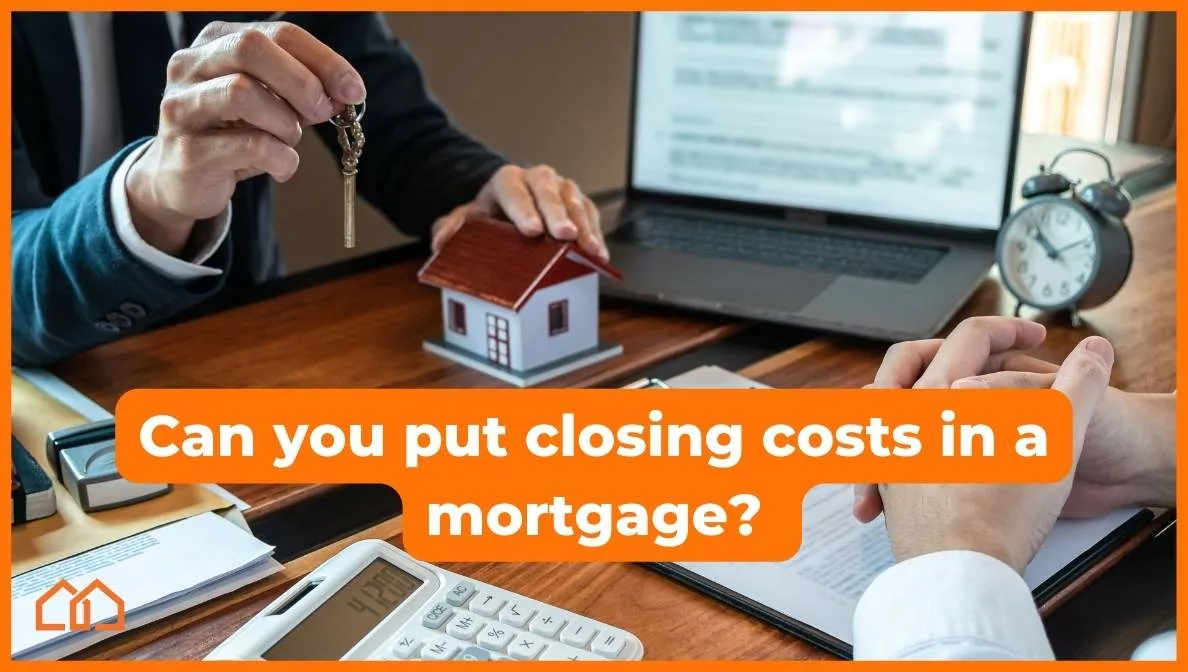Can you put closing costs into a mortgage?
Many borrowers of a mortgage loan ask this question since closing costs are among the biggest “hidden” costs that surprise first-time buyers. Even for seasoned buyers, paying these extra fees upfront isn’t fun. However, paying home loan closing costs is a rite of passage for anyone who wishes to purchase real estate through a mortgage lender.
Since paying closing costs upfront can be difficult for many homebuyers, especially when home values remain elevated, rolling these costs into the mortgage payment schedule can open doors to homeownership.
How much are closing costs in a home purchase?
Closing costs typically make up around 3 – 6% of the loan amount. This can be a substantial amount of money that is difficult to pay out of pocket. While it’s possible to ask for help through seller concessions in a buyer’s market, the typical buyer covers closing costs traditionally.
The other option is to see you can roll closing costs into the home loan. Can it be done, and if so, how do you make sure it happens? Also, are you aware of your third option: freeing equity from your first home to pay the closing costs of a new construction home? Let’s break down all your options to ensure that closing costs are no barrier to home ownership.
What are in the typical closing costs?
Typical closing costs include a variety of lender fees. They should all be visible in the final loan estimate upon approval. To understand them fully, ask your lender about each line item. Here are the typical closing cost items:
- Credit report fee
- Title insurance fees
- Recording fees
- Underwriting fees
- Loan origination fees
- Inspections (that you didn’t pay out of pocket)
- Other loan-related or homebuying fees
Every loan program can differ slightly, so it’s important to ask your lender about what to expect on the closing disclosure.
Yes, you can cover closing costs by including them in your loan.
Yes, your lender can roll closing costs into your mortgage, but not every lender does this. If it does happen, your lender will pay for your closing costs but give you a higher interest rate in exchange.
This means you’ll have a higher loan balance with a higher interest rate compared to if you paid the closing costs separately. It’s important to check with your lender to see if the option of a no-closing cost loan is available to you.
What about if you refinance?
You can also roll closing costs into your mortgage when you refinance your home. The closing cost amount will depend on the rates in which you refinance and the remaining purchase price, your credit score, debt-to-income ratio, and other factors your lender finds relevant.
To know what to expect, ask your lender what terms are available to you based on the type of loan and how much you have left to pay compared to the original total loan amount.
- Note: With refinancing, the life of the loan “resets” to a new payment schedule that is typically 15 to 30 years. You get a new mortgage insurance premium and payment amount too. Do not refinance unless the terms are in your favor.
Is a no-closing cost loan a good idea?
It depends. If you do not have the assets to pay for closing costs and you’ve exhausted your other resources, then rolling your closing costs into the loan will open a pathway to homeownership. You may take this path after examining your finances and accepting the higher interest rate and any other closing fees involved with it.
If you’re able to handle the higher payments for a season, you also have the option to refinance when conditions are favorable to you. This may be when mortgage rates go down, or if your credit score improves, or if you paid on your loan enough to eliminate private mortgage insurance.
Other considerations
It’s also important to consider the long-term value of home ownership. Even if your payments are higher, you are paying down the loan of a home that you own, not someone else’s mortgage.
Every payment builds home equity while you have the freedom to live in your house as you please. As you build equity, you can open a line of credit to help you buy other properties or make future investments. With a rental, you cannot do this.
Paying For Closing Costs with Equity
If you have a second property or are currently a homeowner, you might be able to tap into home equity to pay for closing costs. In fact, many homeowners use the proceeds from the sale of the first home to finance the purchase of their new home.
Marketplace Homes is uniquely positioned to help you if you want to unlock equity to make your offer more competitive. Our special incentive programs like Sell & Stay and Guaranteed Buyout take the stress out of buying a new home because you gain these benefits:
Cash Out
You can cash out on your first home early so that you can make a no-contingency home sale offer. Meanwhile you receive a lump sum to pay for closing costs and the down payment of your next new construction home.
Save on Commission
When you buy a new build with Marketplace Homes, we will list your first home for 1% commission. This results in thousands of dollars back in your pocket, offsetting the sting of closing costs.
Other Creative Solutions
The great thing about real estate is that the market always cycles, and the current seller’s market can and will eventually swing the other direction. You also have options if you currently rent and are afraid of breaking your lease. Check out these other creative options that you can explore as market conditions fluctuate.
- If you need to break your lease, we have an awesome lease buyout program that can save you thousands on fees, which can help you pay closing costs.
- When the market cycles back to buyers’ favor, you may also hedge your bets on asking the seller to pay for closing costs out of the proceeds of their own home.
- It’s legal to use gift money toward closing costs. If you have a relative or friend who is willing to lend you money for closing costs, your lender should allow it. Just let your lender know as soon as possible about your plan.
- If you’re a first-time home buyer, you may qualify for some local down payment and closing cost assistance programs. Do your research and you may find some surprising benefits!
As you can see, when you get creative, you can get the best real estate deal and ensure that closing costs are no barrier to getting the best interest rates and mortgage payments.
Can you put closing costs into a mortgage?
No matter your financial needs, Marketplace Homes can help you find the right property so you can plan your closing costs. Our expert real estate agents are ready to help you list, market or find a new home.
Whether you are a first-time homebuyer or a seasoned real estate investor, we can assist you with buying one home or many investments in bulk. Contact us to find out more information.
Alicia Persson is a Content Strategist SEO writer at Marketplace Homes, utilizing previous years of experience on real estate teams that specialized in investments and property management. Before she joined Marketplace Homes, she was also a freelance writer for 7 years, leading to a specialization in real estate and home living content for boutique digital marketing agencies. During her writing years, she learned the basics of SEO and gained experience writing for many different clients, making her versatile at creating diverse content.
She is a proud University of Virginia master’s graduate and enjoyed her undergraduate years at the University of Mary Washington. When Alicia is not writing, she plays keytar and sings in a local 90’s rock cover band, or she spends time with her amazing family.

